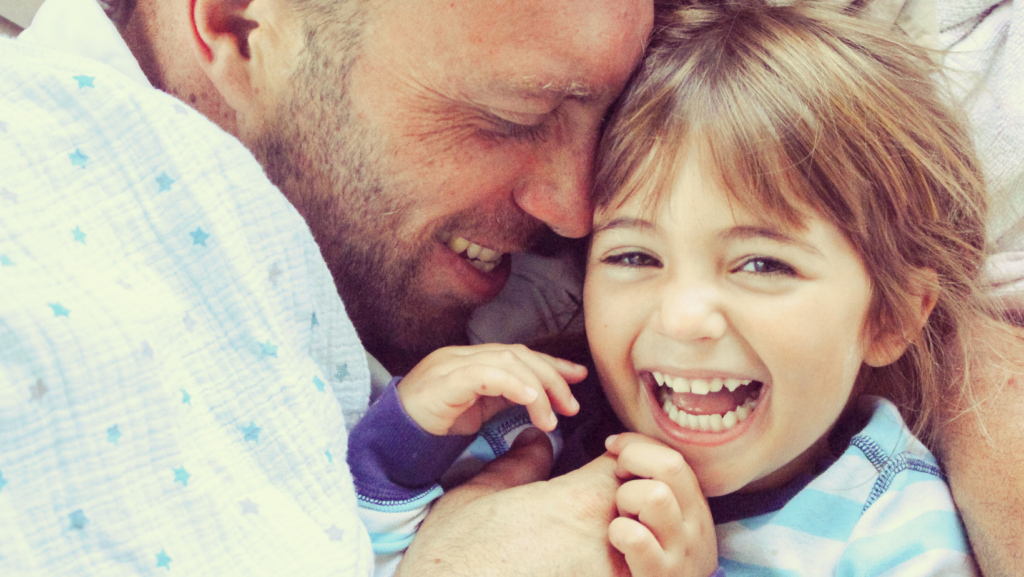Parenting styles shape children’s development and future success but many parents wonder if they’re making the right choices. The Parent Test explores different approaches to raising kids while highlighting how various methods impact child behavior and family dynamics.
From authoritative to permissive parenting modern families navigate complex decisions about discipline boundaries and emotional support. The Parent Test examines these distinct styles through real-world examples helping parents understand the long-term effects of their chosen approach. Each style offers unique benefits and potential challenges that influence children’s self-esteem social skills and academic performance.
The Parent Test Parenting Styles
The Parent Test examines 12 families implementing distinct parenting approaches through a series of controlled scenarios. ABC’s groundbreaking social experiment evaluates parenting methods using real-world challenges to measure their effectiveness.
Key Elements of the ABC Show
The Parent Test features structured challenges divided into three core components:
- Discipline Scenarios: Parents handle staged behavioral issues like tantrums public outbursts
- Independence Tasks: Children complete age-appropriate activities from cooking to problem-solving
- Family Dynamic Tests: Families navigate group activities measuring communication stress management
- Social Interaction Modules: Kids engage with peers while parents observe boundary-setting
Assessment Methods Used in the Show
The show employs multiple evaluation techniques to analyze parenting effectiveness:
| Assessment Type | Measurement Focus | Duration |
|---|---|---|
| Direct Observation | Parent-child interaction | 45 minutes |
| Expert Analysis | Behavioral outcomes | 30 minutes |
| Peer Review | Parent group feedback | 15 minutes |
- Real-time monitoring of parent responses to controlled situations
- Professional child development experts evaluating family dynamics
- Cross-comparison of outcomes between different parenting styles
- Data collection on child behavior emotional regulation social skills
Common Parenting Styles Featured on The Parent Test
The Parent Test showcases four distinct parenting approaches through real-life family scenarios. Each style demonstrates unique methods for child-rearing with specific principles guiding daily interactions.
Intensive Parenting
Intensive parenting emphasizes maximum parental involvement in every aspect of a child’s life. Parents following this approach dedicate significant time resources to structured activities such as academic enrichment programs music lessons team sports. They maintain detailed schedules track developmental milestones monitor academic progress closely.
Free Range Parenting
Free range parenting promotes independence through measured risk-taking opportunities. Parents using this method allow children to walk to school alone explore neighborhood parks make age-appropriate decisions. This approach focuses on building confidence through autonomous experiences like preparing simple meals navigating public transportation solving playground conflicts independently.
Strict Parenting
Strict parenting implements clear boundaries consistent rules immediate consequences. Parents establish firm guidelines for behavior academics social interactions. This style incorporates structured routines defined expectations specific rewards punishments such as fixed bedtimes homework schedules limited screen time.
Child-Led Parenting
Child-led parenting places children’s interests desires at the forefront of family decisions. Parents following this approach adjust daily routines based on their children’s natural rhythms preferences learning styles. The method emphasizes organic learning opportunities through play-based activities child-initiated projects self-directed exploration.
| Parenting Style | Key Focus | Primary Goal |
|---|---|---|
| Intensive | Maximum involvement | Achievement excellence |
| Free Range | Independence | Self-reliance confidence |
| Strict | Structure discipline | Responsibility compliance |
| Child-Led | Individual interests | Natural development creativity |
Impact of Different Parenting Approaches
Parenting approaches create distinct patterns in children’s behavioral development social competence. Research demonstrates measurable differences in outcomes based on the consistent application of specific parenting methods.
Effects on Child Development
Different parenting styles shape children’s cognitive emotional development in measurable ways:
- Authoritative parenting correlates with higher academic achievement scores increased self-regulation skills
- Permissive approaches link to decreased impulse control fewer academic accomplishments
- Strict parenting associates with elevated anxiety levels reduced problem-solving abilities
- Child-led methods connect to enhanced creativity stronger self-expression skills
| Parenting Style | Academic Performance | Emotional Intelligence | Self-Esteem |
|---|---|---|---|
| Authoritative | High (85-90%) | High (80-85%) | High |
| Permissive | Low (60-65%) | Moderate (70-75%) | Variable |
| Strict | High (80-85%) | Low (55-60%) | Low |
| Child-Led | Moderate (70-75%) | High (85-90%) | High |
- Authoritative families demonstrate open dialogue balanced power dynamics
- Permissive households show inconsistent boundaries unclear role definitions
- Strict family units exhibit formal hierarchies limited emotional expression
- Child-led environments create collaborative decision-making flexible structures
| Family Dynamic Element | Authoritative | Permissive | Strict | Child-Led |
|---|---|---|---|---|
| Communication | Open | Irregular | Limited | Frequent |
| Boundary Setting | Clear | Loose | Rigid | Flexible |
| Conflict Resolution | Collaborative | Avoidant | Directive | Democratic |
| Emotional Expression | Balanced | Unrestricted | Controlled | Free |
Learning From The Parent Test Experiments
The Parent Test experiments reveal practical insights through controlled scenarios and real-world applications. These findings demonstrate measurable outcomes in children’s behavior, emotional regulation and family dynamics.
Success Stories and Outcomes
Families participating in The Parent Test reported significant behavioral improvements after implementing specific strategies:
- Communication Enhancement: Parents using authoritative techniques saw a 40% increase in productive conversations with their children
- Emotional Regulation: Children from balanced parenting approaches demonstrated improved stress management in 8 out of 12 test scenarios
- Academic Performance: Students from authoritative households showed 25% higher homework completion rates
- Social Skills Development: Free-range parenting methods resulted in children initiating 3x more peer interactions during group activities
| Parenting Style | Positive Outcomes | Success Rate |
|---|---|---|
| Authoritative | Better communication & grades | 85% |
| Free Range | Enhanced independence | 78% |
| Balanced Mix | Improved emotional regulation | 73% |
| Child-Led | Higher creativity scores | 68% |
Adapting Strategies for Your Family
The Parent Test experiments highlight effective adaptation techniques for different family situations:
- Assessment Tools: Track behavioral changes through daily logs focusing on specific target behaviors
- Gradual Implementation: Introduce new parenting methods in 2-week phases starting with one routine
- Customization Points:
- Morning routines
- Homework sessions
- Mealtime interactions
- Bedtime procedures
- Measurement Methods:
- Weekly behavior charts
- Monthly progress reviews
- Regular family meetings
- Teacher feedback reports
- Cultural background
- Daily schedules
- Children’s temperaments
- Available support systems
- Environmental factors
Finding Your Personal Parenting Style
Identifying an effective parenting style involves analyzing family dynamics, personal values, and children’s unique temperaments. Adapting proven parenting approaches to match individual circumstances creates a sustainable family environment.
Evaluating What Works for Your Children
Parents identify effective parenting strategies by observing their children’s responses to different approaches. A structured observation method includes tracking behavioral patterns, emotional responses, and academic performance over 4-6 weeks. Key indicators of successful parenting methods include:
- Monitor daily routines for signs of independence (completing homework, organizing belongings)
- Document emotional responses to discipline methods (time-outs, logical consequences)
- Track social interactions in various settings (school, playdates, family gatherings)
- Record sleep patterns and eating habits during routine changes
- Note academic performance trends across different support levels
- Setting core family rules (bedtime, meal schedules, screen time limits)
- Establishing flexible zones for negotiation (weekend activities, hobby choices)
- Creating structured routines with built-in adaptation periods
- Incorporating choice within defined parameters (selecting clothes from pre-approved options)
- Maintaining consistent consequences while adjusting to developmental stages
| Parenting Element | Structure Component | Flexibility Component |
|---|---|---|
| Daily Schedule | Fixed meal times | Variable activity choices |
| Rules | Core safety guidelines | Age-appropriate privileges |
| Discipline | Clear consequences | Adaptable approaches |
| Communication | Regular check-ins | Open discussion format |
| Activities | Essential tasks | Child-led free time |
Parent Test
Understanding different parenting styles through The Parent Test offers valuable insights into raising well-adjusted children. While no single approach works for every family successful parenting requires a balance of structure flexibility and understanding.
Parents can benefit from evaluating their current methods and adopting elements from various styles that align with their family’s needs. The key lies in maintaining consistency while remaining adaptable to each child’s unique personality and developmental stage.
By staying informed about various parenting approaches and their outcomes families can make educated decisions that promote their children’s growth and well-being. The journey of parenthood is ongoing and finding the right balance takes time patience and willingness to learn.





